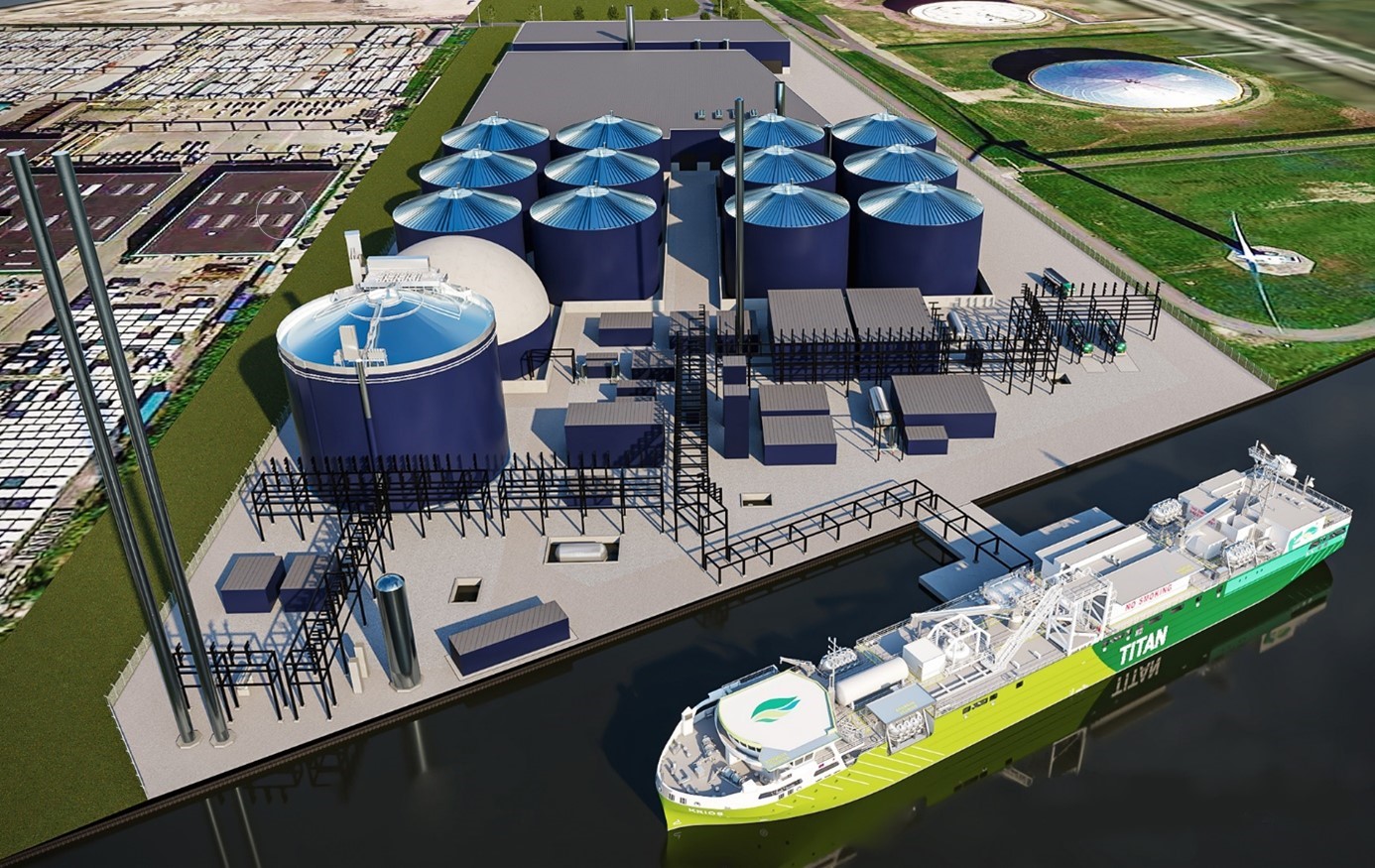Dutch LNG supplier Titan said it would build the world’s largest liquefied biomethane or bio-LNG plant in the Amsterdam port.
According to a statement by Titan, the facility located adjacent to the company’s berth in the Port of Amsterdam would have a capacity to produce about 200,000 tonnes of bio-LNG per year and would supply ships as well as trucks.
The Port of Amsterdam will lease the land for the facility.
Moreover, Titan signed contracts with biogas producer BioValue for the exclusive offtake of all produced biogas, and with Linde Engineering to perform the basic engineering based on its proprietary liquefaction technology.
BioValue, one of the largest biogas suppliers in the Netherlands, will supply a significant part of the biogas required for the total bio-LNG production.
For this, BioValue will construct a new biogas plant, adjacent to the new plant.
Also, Titan said it would source the remaining biogas from other production installations throughout Europe that have a connection to the existing gas grid.
This hybrid sourcing setup enables the scale required for “impactful decarbonization” of the marine industry, it said.
First bio-LNG supplies in 2025
Titan said it would supply the bulk of the bio-LNG volumes produced by the plant to the vessels of its launching customer.
For the remaining volumes truck refueling stations and industrial customers “are also within scope”, it said.
The bio-LNG will substitute fossil fuels, avoiding about a million tonnes of CO2 equivalent emissions per year, equal to the annual emissions of about 25 percent of all diesel cars in the Netherlands, Titan claims.
The project aligns well with EU regulations such as proposed in the Fit-For-55 package and the recently published RePowerEU plans, it said.
According to Titan, the project would only source biogas from sustainable feedstocks that are compliant with the latest EU Renewable Energy Directive, and are ISCC certified.
Moreover, other sustainable integrations in the plant include the capturing and utilization of the biogenic CO2 side stream, and the hydrogen-ready design.
This enables future production of e-methane where the biogenic CO2 is combined with green hydrogen, the firm said.
For this, there are plans for a connection to the hydrogen backbone in the Port of Amsterdam.
Titan expects to launch bio-LNG production at the facility in 2025.

